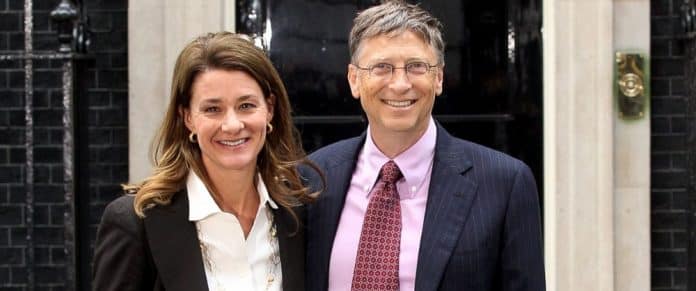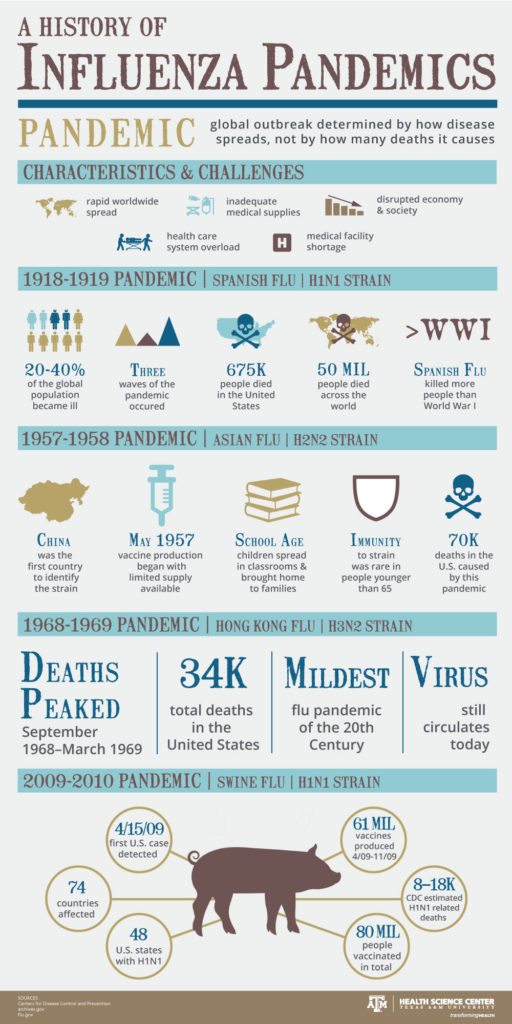Gates Foundation Pledges $12 million to Bolster Universal Flu Vaccine Research
It is very clear that the threat of pandemic influenza is very real. It might not seem like a great deal or a matter requiring urgent interest, but the fact that 2018 marks the 100-year anniversary of the most severe influenza pandemic in recorded history, which killed an estimated 50 million people worldwide – more than the total deaths caused by the First World War- is a pretty frightening scenario.
And in the latest development with regard to the efforts to develop a well-equipped universal flu vaccination, billionaire philanthropist and Microsoft co-founder, Bill Gates, has announced $12 million in seed money through his foundation to spur innovative thinking on a scientific challenge that has stumped the influenza research community for decades and is considered the holy grail of flu research.
The $12 million “Grand Challenge” intends to “encourage bold thinking by the world’s best scientists across disciplines, including those new to the field.”
The initiative is called a “challenge”, specifically because it isn’t looking at the low-hanging fruit of small changes to current seasonal flu vaccines—or vaccines aiming to cover multiple influenza strains- but instead, the challenge explicitly states that it’s fostering vaccines that protect against all subtypes of circulating and emerging influenza A and influenza B viruses for at least three to five years.
“We think a universal flu vaccine would not only eliminate the pandemic risk, but would have significant health benefits,” Gates said in an interview with STAT reporters and editors, before announcing the funding at a symposium on epidemics organized by the Massachusetts Medical Society and the New England Journal of Medicine. “It would be a fantastic thing.”
Although modern medicine has made huge strides since the last flu pandemic in the year 1918 when a third of the world’s population had been infected and at least 40 million people had died- we still have no means to stop the pandemic this time around.
“If a virus like the 1918 flu struck again, we wouldn’t be able to create a vaccine fast enough to make a big difference,” says Sarah Gilbert, a virologist at Oxford University, who has been working on a universal flu vaccine for years. “It takes six months to manufacture the first doses of a vaccine for a new strain — and that’s just the first doses. It will take longer to get the first million or 10 million doses,” Gilbert says.
Let’s get real, each year, scientists have to guess which version of the flu will be most problematic first, and then — starting from scratch — pursue a vaccine that matches that strain perfectly. This vaccine sometimes works. And when it does, it works only for one flu season. That is why it’s called a “seasonal vaccine.” The strenuous process takes approximately six months- which is way too long when you’re talking about an ubercontagious, airborne virus that can spread around the globe in months.
“Here is one area, though, where the world isn’t making much progress, and that’s pandemic preparedness. This should concern us all, because if history has taught us anything, it’s that there will be another deadly global pandemic.” Gates said at the symposium. He noted it’s not known when the next one will occur. “But given the continual emergence of new pathogens, the increasing risk of a bioterror attack and how connected our world is through air travel, there is a significant probability of a large and lethal, modern-day pandemic occurring in our lifetimes,” he said. “Watching Hollywood thrillers, you’d think the world was pretty good at protecting the public from deadly microorganisms. We like to believe that somewhere out there, there is a team ready to spring into action- equipped with the latest and best technologies.
“In the real world, though, the health infrastructure we have for normal times breaks down very rapidly during major infectious disease outbreaks. This is especially true in poor countries. But even in the U.S., our response to a pandemic or widespread bioterror attack would be insufficient.”
“What the world needs- and what our safety, if not survival, demands — is a coordinated global approach,” Gates said. “Specifically, we need better tools, an early detection system and a global response system.”
Besides, the fund isn’t the only initiative dedicated specifically to pandemic preparedness by the foundation, they are also additionally working towards a universal flu vaccine in partnership with other organizations including the Icahn School of Medicine at Mount Sinai, GlaxoSmithKline, and PATH, a global health nonprofit. So far, these efforts have not led to a breakthrough yet, although there are some clinical trials expected to begin soon.































